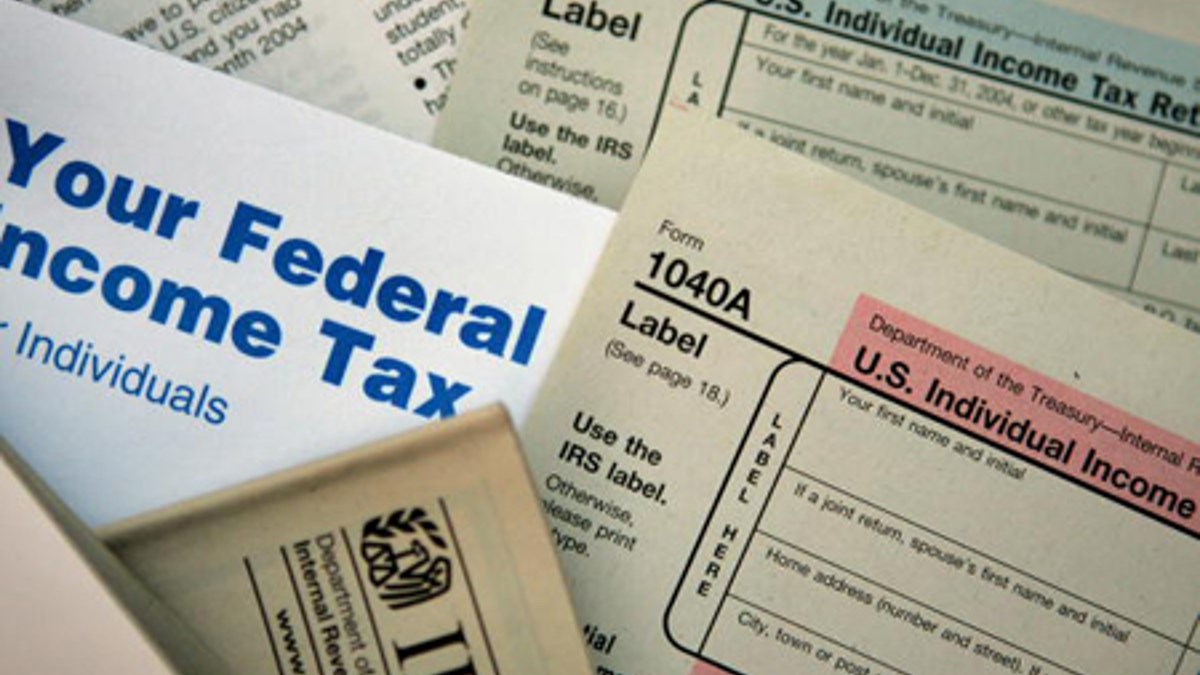
CHICAGO - NOVEMBER 1: Current federal tax forms are distributed at the offices of the Internal Revenue Service November 1, 2005 in Chicago, Illinois. A presidential panel today recommended a complete overhaul of virtually every tax law for individuals and businesses. (Photo Illustration by Scott Olson/Getty Images) (2005 Getty Images)
What if President Trump had the authority—on his own—to enact a second powerful tax reform? He does. The momentum is building for him to use it.
In the halls of Congress, the corridors of the administration, and the nerve centers of activist groups, forces are aligning behind a plan: a White House order to index capital gains for inflation. It’s a long-overdue move—one that would further unleash the economy and boost GOP election prospects. And Mr. Trump could be the president bold enough to make it finally happen.
A President Trump who has so confidently wielded his authority to cut down regulation should have no issue wielding it to cut down an outdated, decades-old legal memo that is holding back the economy and unfairly burdening investors—small and big alike.
At President Reagan’s behest, Congress in the 1980s indexed much of the federal tax code for inflation. Oddly, capital gains weren’t similarly treated. The result is that businesses and individuals pay taxes on the full nominal amount they earn on investments, even though inflation eats up a good chunk of any gain. It’s not unheard of for taxes to exceed real gains after inflation. The result is significant capital distortion, as companies sit on buildings and property or investors sit on stock—rather than selling and thereby putting both assets and gains to more productive use.
Conservatives have understood this problem for decades, yet for decades they have been held hostage to a 1992 government brief. The paper by the Justice Department’s Office of Legal Counsel offered a few faulty arguments as to why the Treasury lacked the authority to make this regulatory change. Neither President Bush questioned it, but others have.
Keep reading Kimberley Strassel's column in the Wall Street Journal.
